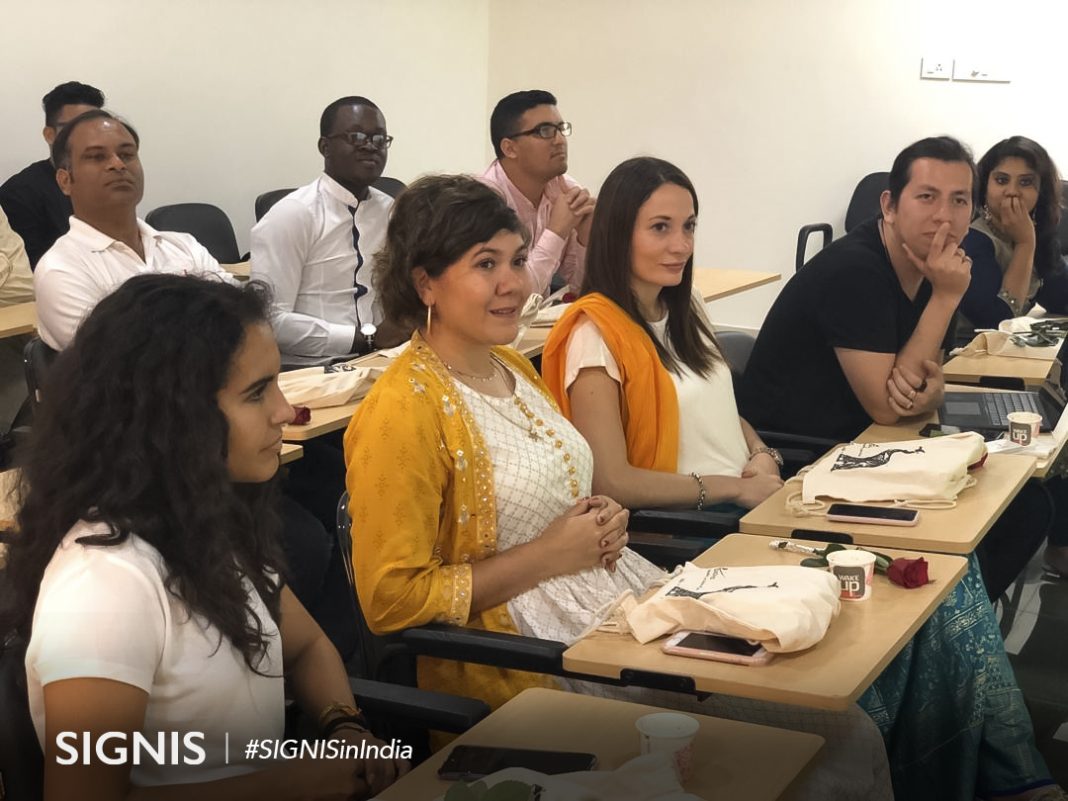In January 2020, nine young communicators from the four corners of the world embarked on a transformative journey to India – venturing into the unknown, stretching their limits, and trusting in God’s will and God’s way. Over the next four months, they attended the Global Fellowship Programme on Compassion and Social Communications, the result of a partnership between our Association and the Xavier University of Bhubaneswar (XUB).
After becoming the first generation of young communicators to graduate from the programme, our fellows returned to their home countries, carrying with them new knowledge, skills, and lifelong memories. And so, one year later, we reached out to some of our fellows, asking them to reflect upon the personal and spiritual growth they gained through this experience.
In this multi-part series, Solange from Argentina, Elena and Sandra from Mexico, Isaac from Togo, Xavier from Cuba and Sumit from India share the most powerful lessons that have changed their lives.
What have you learned about Indian culture both in and out of the classroom?
Solange: First, the ability to coexist, live, learn and grow in the difference. It’s something I admire how they are able to combine pieces from very different things and make them work all together. I also was really delighted by the way they treat others: they make you feel like home from the very first moment. They’re really kind, attentive and amazing hosts! I feel very honoured for the chance of being there and meeting them, they have helped us through really difficult times, and I have them all in my heart. Of course, their culture, food, colours and smells are something I will always have with me.
Elena: I learned that we have to go back to the natural, to the essence of things to find the why and the what. I found that what we call faith can be anything, any idea and thought and that it is important to know what we give strength and energy to. I learned that it is possible to transform ourselves, stop believing in what we believed, but that doesn’t mean that we close ourselves to an idea, rather, you allow yourself to understand and deepen what you know and do not know.
Isaac: To link this to the main topic of the Laudato Si Fellowship, it worth it to say that the concept of ecology which for some aspect can be seen as a modern concept, has long and ancient roots in Indian culture. In fact, “ecology” was more than a concept in the Indian culture. It has always been central in the existence of the Indian civilization. Among other reasons explaining this, there is the fundamental conception of the Creature, the Creator, the Creation and the understanding of the interrelation between them through the lens of spirituality and religion. This led to ethical and moral considerations which have always been core aspects of Life in this part of the world.
Xavier: Their sense of the sacred in every aspect and object of life. Their love for respect, discipline, joy and colours; their respect for the elders, for nature and for their guests; the understanding of food, gestures and breathing as part of the human essence; their history and complexity; their love for small meaningful things. That’s only a partial view of India, great in time and space.
Sandra: For me, it was that they’re very down to earth people, they’re both very rational and emotionally intelligent! They have this eastern deepness to express things with such art, poetry and spirituality. They’re also very practical and show that life is what it is, don’t deny the hardships but also don’t overthink them; work in what you can control and ask for help and move on.
Sumit: Indian culture is very special to me. We Indians possess extraordinary traditions and customs, feast and festivities, dialects and languages, and above all food and cuisines to cherish our culture. I enjoyed exploring Bhubaneswar city a lot. The study trips, outings and visits helped me discover the untouched shores of human history and filial ties. We, fellows and friends also developed a friendship through these encounters. I got a great chance to know my friends’ culture from different parts of the world through their open sharing and delicious cooking.


